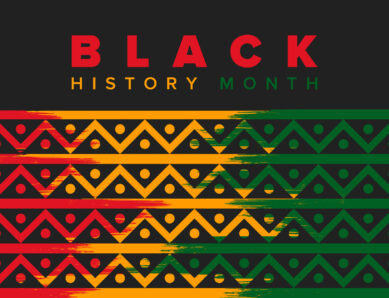February is Black History Month in the U.S. and Canada. It’s a great opportunity to broaden our perspectives and understanding of Black History and of the impact of people of color today. And to learn more about key figures from the past and present who rarely make it into the official history books.
Who We’ve Been Learning About for Black History Month
From entrepreneurs Madame C.J. Walker and Ade Hassan, to civil rights change-makers Harriet Tubman and Maya Angelou, here’s an inspiring selection of women recommended by colleagues at Mind Tools, this Black History Month:
Harriet Tubman (1822-1913) – Slave, Abolitionist, Spy, and Care-Giver
Nominated by Vicky Williams, Group CEO at Mind Tools’ parent company, Emerald Group.
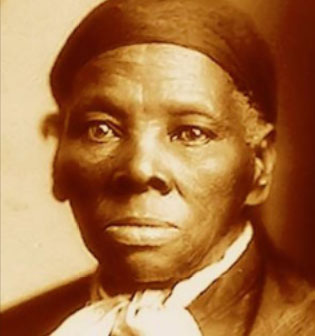
“If you hear the dogs, keep going. If you see the torches in the wood, keep going. If there’s shouting after you, keep going. Don’t ever stop. Keep going. If you want a taste of freedom, keep going.”
Harriet Tubman.
Harriet Tubman was born into slavery in 1822 in Maryland, U.S. But after her owner died in 1849, she escaped to the North and to freedom. But she didn’t stop there. Instead, she dedicated her life to helping others do the same by becoming the famous “conductor” of the Underground Railroad.
Between 1850 and 1860, she made 19 trips guiding more than 300 people, including her parents and siblings, to freedom in the North. She became a prominent abolitionist before the Civil War and, during the war, became the first woman to lead an armed expedition, which liberated more than 700 slaves in South Carolina.
Despite falling into financial ruin, Tubman dedicated the last years of her life to looking after her friends and family. But head injuries she’d sustained earlier in her life while she was a slave became more painful and debilitating. After she died, she was buried with military honors at Fort Hill Cemetery in Auburn.
Vicky says of Tubman, “I didn’t know much about Harriet Tubman until I watched The Underground Railroad, but she was absolutely fearless and helped so many slaves escape the plantation system to freedom. She also worked as a spy during the American Civil War! So brave, so selfless, and relatively overlooked until recently.”
Henrietta Lacks (1920–1951), Tobacco Farmer, and unwitting contributor to cell biology and medicine
Nominated by Harriet Bell, Marketing Director at Emerald Publishing.
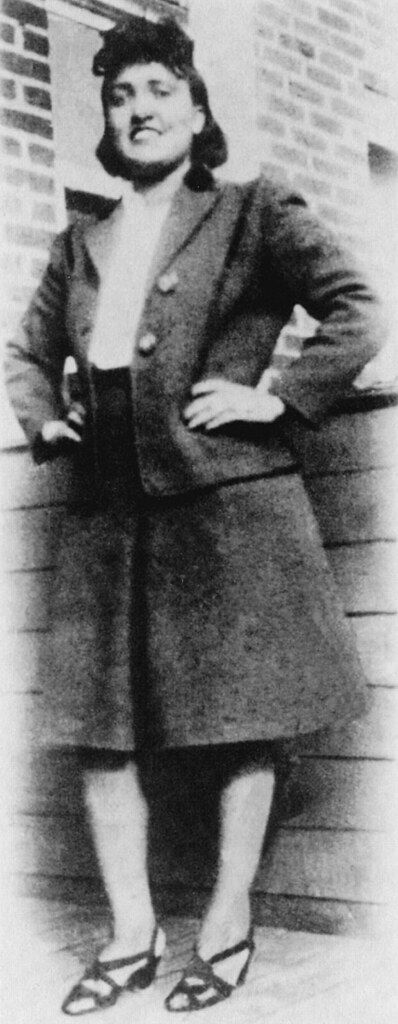
“I keep with me all I know about you deep in my soul, because I am part of you, and you of me. “
Deborah Lacks, Henrietta’s daughter.
Henrietta Lacks (born Loretta Pleasant) came from Roanoke, Virginia. After her mother died, her father moved the family to Clover, where Lacks and her siblings could be looked after by family. Lacks ended up living with her maternal grandfather in a two-storey log cabin, that was once the slave quarters on a plantation that had been owned by Henrietta’s white great-grandfather.
It was here she met her husband and started work as a tobacco farmer. They went on to have five children together. But, in 1951, Lacks was referred to hospital after finding a lump that was later diagnosed as cervical cancer. Although she received treatment, she died.
Without her and her family’s knowledge at the time, hospital doctors had taken a sample of her cells and were astonished to see that they could replicate indefinitely, making them hugely valuable to medical research. These “immortal” cells, now known as the HeLa cell line, underpin much of modern medicine, including cancer research, immunology, and infectious disease control. But for decades, her family were frozen out of decisions made by the medical community in regards to her name and the contribution she made (without consent) to science.
It’s only in recent years that the family of Lacks, and Lacks herself, have been properly celebrated and acknowledged. Her life has been brought to wider attention by Rebecca Skloot’s 2010 book, “The Immortal Life of Henrietta Lacks,” and the 2017 film, based on the book and produced by Oprah Winfrey.
Harriet says, “I was blown away when I read ‘The Immortal Life of Henrietta Lacks,’ so I always try to celebrate and remember her.”
Maya Angelou (1928-2014), Singer, Actor, Poet, Playwright, Author, Activist
Nominated by Lucy Bishop, Senior Editor at Mind Tools.
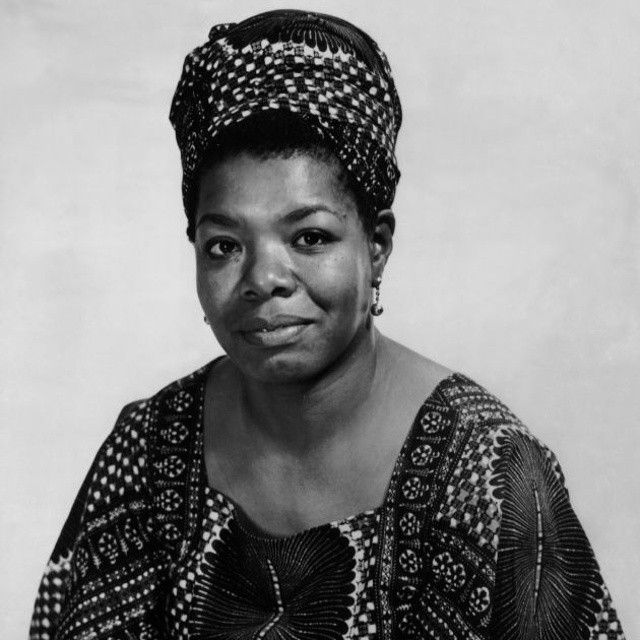
“There is no greater agony than bearing an untold story inside you.”
Maya Angelou, I Know Why the Caged Bird Sings
Maya Angelou (born Marguerite Annie Johnson) is perhaps one of the most famous of all U.S authors. Known widely for her poems and autobiographies, she was also an accomplished actor and screenplay writer, appearing in popular films such as How to Make An American Quilt and Look Away, as well as the television series, Roots.
Not only did she make literary history with her memoir, “I Know Why the Caged Bird Sings,” which became the first non-fiction bestseller from a Black author in the U.S., she was also the first Black female director in Hollywood. And, this year, she became the first African American woman to appear on a U.S. coin.
Her childhood included the double trauma of being raped and then blaming herself for the murder of her abuser after she spoke up about him. Yet Dr Angelou became one of the most successful writers in the world, as well as a prominent campaigner for racial equality.
Lucy says of Maya Angelou, “I’ve been learning about Maya Angelou for Black History Month and beyond. It amazes me that someone who experienced something so awful in their childhood, and was mute for five years after, could eventually go on to speak and share such wonderful words.
“It’s her poems that I love the most. Some are so short, but I feel like I immediately know her when I read them. She has a distinctive style that’s so lyrical, sharp, witty, and beautiful, all at once.”
bell hooks (1952-2021), Author, Professor and Activist
Nominated by Carolina Marques Moriera, Latin America Marketing Manager at Emerald Publishing.
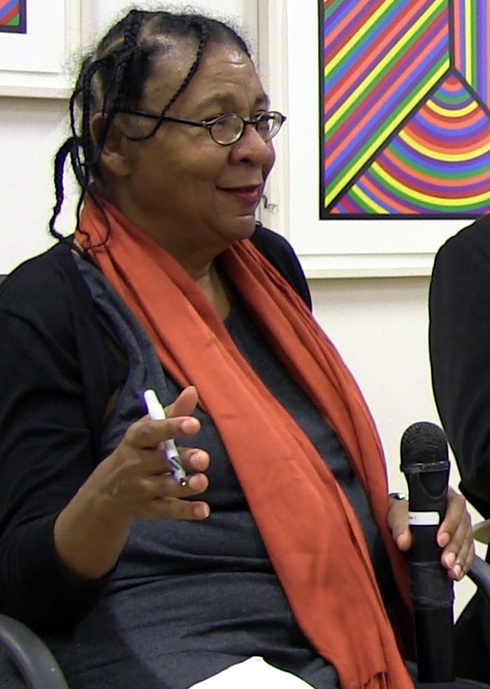
“Dominator culture has tried to keep us all afraid, to make us choose safety instead of risk, sameness instead of diversity. Moving through that fear, finding out what connects us, reveling in our differences; this is the process that brings us closer, that gives us a world of shared values, of meaningful community.”
bell hooks, from “Teaching Community: A Pedagogy of Hope,” 2001
bell hooks was born Gloria Jean Watkins but adopted her great-grandmother’s name. She always spelled it in lowercase because she wanted readers to focus on, “the substance of books, not who I am.”
She grew up in Hopkinsville, Kentucky, attending a racially segrated public school, before moving to an integrated school in the 1960s. From there she had an esteemed academic career, obtaining her BA in English from Stanford University, as well as a Masters from Wisconsin-Madison. After this she began teaching English, first at the University of Southern California, and then Yale, and the City College of New York.
She published more than 30 books in her lifetime, including “All About Love” in 1981, which is still considered to be one of the most influential books on feminism, race and intersectionality.
Madame C.J. Walker (1867-1919) and Annie Turnbo Malone (1877-1957), Entrepreneurs
Nominated by Sally Wilson, Publishing Director at Emerald Publishing.
Madame C.J. Walker
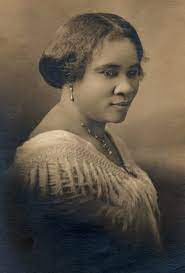
“I am a woman who came from the cotton fields of the South. From there I was promoted to the washtub. From there I was promoted to the cook kitchen. And from there I promoted myself into the business of manufacturing hair goods and preparations.”
Madame C.J. Walker
According to the Guinness Book of World Records, Madame C.J. Walker (born Sarah Breedlove) is recorded as the first self-made millionaire in the U.S. Her success was founded on haircare products designed for Black women, which she produced after suffering from hair loss herself. This she marketed as “Madam C.J. Walker’s Wonderful Hair Grower,” a scalp conditioning and healing formula, which she later claimed came to her in a dream.
After travelling door to door selling her products throughout the South and Southeastern parts of the country, by 1910 she’d made enough to build her own manufacturing center, which included a factory, hair and manicure salon, and a training school.
She also used her wealth to give back to her community, donating to the YMCA and the NAACP’s (National Association for the Advancement of Colored People) anti-lynching movement.
She encouraged her employees to get involved in activism too. And used her house in New York City, which she commissioned an architect to build for her for $250,000, to become a gathering place for community leaders.
Madame C.J. Walker’s story, now the subject of Netflix series Self-Made, is intertwined with that of another black businesswoman of the time, Annie Turnbo Malone.
Annie Turnbo Malone
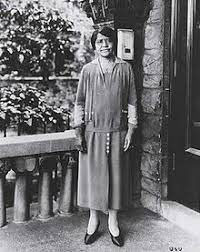
Malone, too, is considered to be one of the first African American women to become a millionaire, and became famous for developing a line of cosmetics for Black women. She even employed Madame Walker for a time, before eventually becoming a business rival.
Her story began back in 1869, when she was born the 10th of 11 children to Robert and Isabella Turnbo. Young Annie was often sick, and missed school as a result. But, although she didn’t graduate, she did discover she had an aptitude for chemistry. It was this that led her to experiment and develop a hair product designed to straighten African American women’s hair without damaging it, unlike other products on the market.
The business soon grew, but, as a Black woman, Turnbo was denied access to regular distribution channels to sell her products. Instead, much like Walker, she sold her products door to door, and gave demonstrations. After continued success, in 1904, her product went national. And by the end of the First World War, she was a millionaire.
Also like Walker, Malone used her wealth to raise up those around her, setting up her own cosmetology college in 1918, and becoming a great philanthropist.
She donated much of her money to support charities across the U.S. including the YMCA, Howard University College of Medicine, and the St. Louis Colored Orphans Home, which was renamed the Annie Malone Children and Family Service Center in her honor.
Sally sums up, “Self-made millionaire Madame C.J. Walker advocated for economic independence for Black people, in particular, Black women. And Annie Turnbo Malone also empowered women and people of color, through employment opportunities and charitable activities.”
Ade Hassan MBE (1984-present) – Businesswoman and Entrepreneur
Nominated by Sonia Harris, U.S. Coach and Community Moderator at Mind Tools.
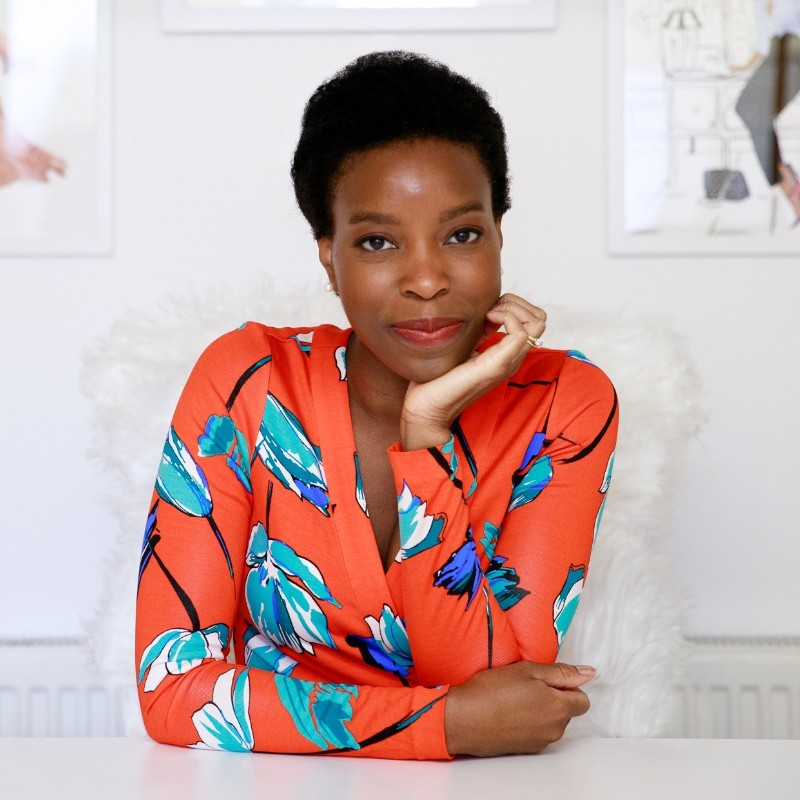
“My nude isn’t the nude I see in shops.”
Ade Hassan.
Sonia explains, “For Black History Month, I would like to highlight Ms Ade Hassan, MBE, a pioneer who helped redefine ‘nude’ in fashion.
“She is the founder of and creative mind behind nubianskin.com – a London-based company whose products include more inclusive shades of lingerie and hosiery for women of color.
“I had the pleasure to meet Ade during her 2018 U.S. tour, where she visited a Washington, D.C. boutique to promote Nubian Skin. I had been following her on social media since 2017 and was excited to meet the founder of a product that I need and would buy.
“Ade recently celebrated Nubian Skin’s seventh year in business. She now has multiple products and has even expanded her line to include menswear.”
Mary Jackson, Katherine G. Johnson and Dorothy Vaughan – NASA “Computers” and Engineers
Nominated by Katie Danes, Custom Sales Manager at Mind Tools for Business.
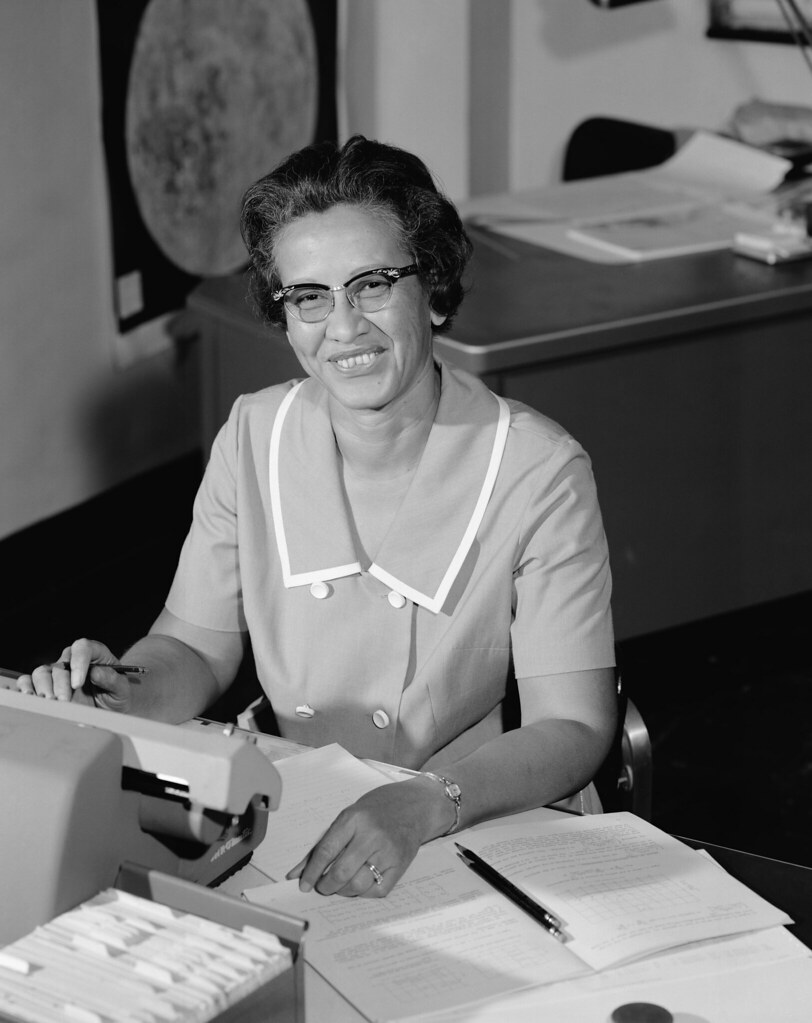
“I don’t have a feeling of inferiority. Never had. I’m as good as anybody, but no better.”
Katherine Johnson, NASA Statements on John’s Medal of Freedom, 2015.
Katie says, “I recently watched the film ‘Hidden Figures.’ It tells the amazing story of three female mathematicians in the 1950s and their roles at NASA, as well their achievements. However, their fight for recognition and equal working conditions at a time when race and gender went against them is what’s truly inspiring. The three women I’m celebrating for Black History Month are:
- Physicist and mathematician Katherine G. Johnson (1918-2020). She calculated trajectories, launch windows, and return paths for many of NASA’s major missions between the 1950s and 1980s. In 2015, at age 97, she was awarded the Presidential Medal of Freedom, America’s highest civilian honor.
- Mathematician Dorothy Vaughan (1910-2008). She was the first African-American woman to be promoted to Head of Personnel at NASA. While there, she led a team of African-American female mathematicians through several crucial space projects.
- Mary Jackson (1921-2005). Jackson was a mathematician and became NASA’s first Black female engineer, in 1958. After trying unsuccessfully to break into management-level grades, she made a dramatic career change, leaving engineering to become the NASA Langley Federal Women’s Program Manager. She used this position to help others like her break through the glass and concrete ceilings by impacting hiring and promotion opportunities for future female employees.”
Mae C. Jemison (1956-present) – Astronaut and Physician
Nominated by Amy Jones, Technology team at Emerald Group Solutions.
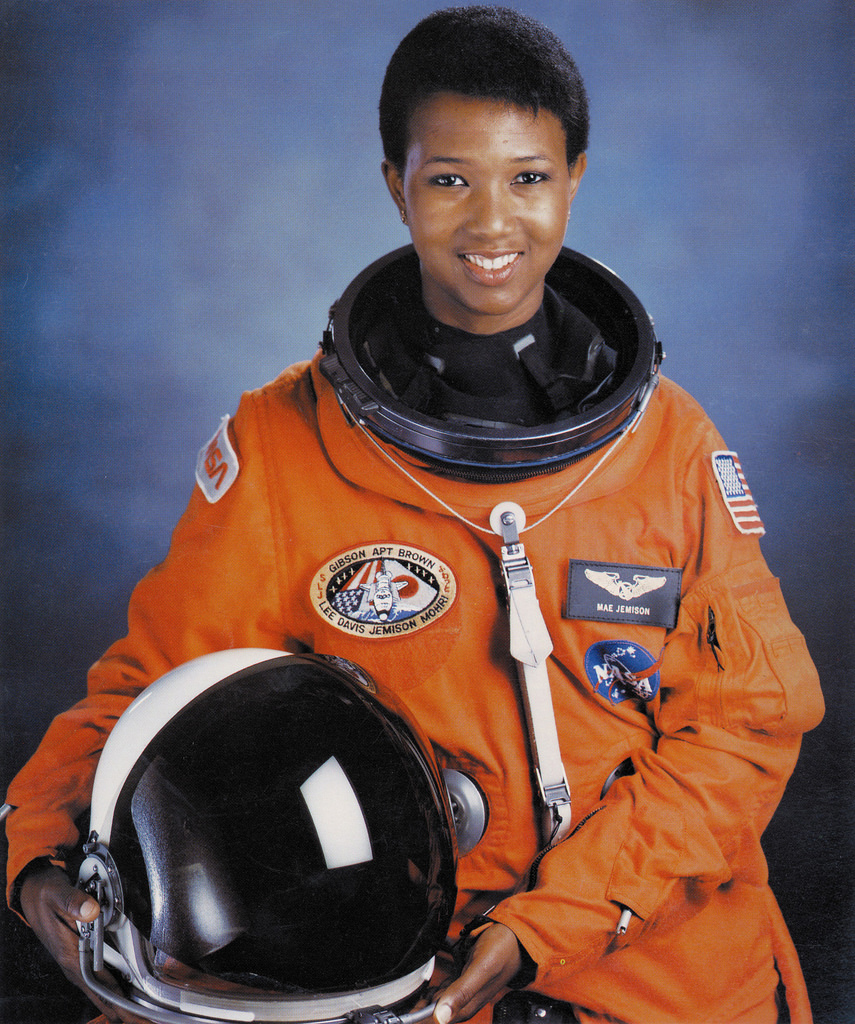
“There is a fascination with the idea that one has seen someone else do something before one can achieve it. I knew what I wanted to do.”
Mae C. Jemison
Mae C. Jemison became the first African American woman to be admitted into NASA’s astronaut training program in 1987 and the first to fly into space.
Growing up with a love of science, especially astronomy, young Mae spent much of her time in the school library and was a particularly talented student. She graduated as an honor student and went on to study at Stanford University on a National Achievement Scholarship.
While there she also served as head of the Black Student Union, and after her graduation went on to study medicine at Cornell University Medical College. After obtaining her M.D. in 1981, she worked as a general practitioner, and worked for the Peace Corps as a medical officer for Sierra Leone and Liberia.
It was not until her return to the U.S. in 1985 that Jemison made the decision that would eventually see her enter the history books. She applied to NASA’s astronaut training program.
After finally making it into space, she left the astronaut corps in 1993, and began teaching at Dartmouth, before becoming Professor-at-Large at Cornell University. She also established the Jemison Group, which does research into the sociocultural impact of technological advancements and design.
She even earned a spot on famous sci-fi series, Star Trek, as Lieutenant Palmer, becoming the first real-life astronaut to appear on the show.
Amy said that she’s been learning about Mae C. Jemison for Black History Month because, “…she was the first Black woman to travel into space and the first person from Star Trek in actual space (before William Shatner). My 6-year old daughter told me she was inspired by Nichelle Nichols (Lieutenant Uhura from Star Trek) to become an astronaut and, after that, managed to get a speaking part on Star Trek: The Original Series.”
Claudia Jones (1915-1964) – Journalist and Activist
Nominated by Jennifer Bough, Content Coordinator at Emerald Publishing.
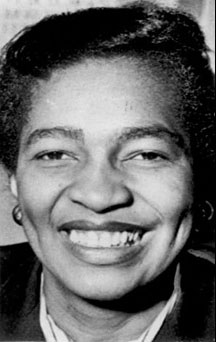
“A people’s art is the genesis of their freedom.”
Claudia Jones.
“Claudia Jones was a feminist, Black nationalist, political activist, community leader, communist, and journalist. She is most commonly known as the mother of Notting Hill Carnival. But was also the founder of Britain’s first black weekly newspaper, The West Indian Gazette in 1958.
“Born in Trinidad and Tobago, her family migrated to the U.S., where Jones became an active member of the Communist Party. Her main focus was creating ‘…an anti-imperialist coalition, managed by working-class leadership, fuelled by the involvement of women.’
“Her best known piece of writing, “An End to the Neglect of the Problems of the Negro Woman!,” written in 1949, demonstrates her radical politics through (what later became known as) intersectionality within a Marxist framework. Her involvement in the party lead to imprisonment and eventual deportation to England in 1955, where she became involved in the British African-Caribbean community, campaigning for equal rights and basic access to facilities.
“While in London, her campaigning continued until her death, aged 49. She is buried in Highgate Cemetery, to the left of the Karl Marx memorial.”
Who Have You Been Celebrating for Black History Month?
Join the conversation and tell us who you’ve been remembering and celebrating during Black History Month.
Perhaps you’re learning about a famous historical figure, a celebrity or current public figure. Or you just want to celebrate a friend or family member who you’re particularly proud of.
Whatever the case, please share your recommendations and stories in the Comments section, below.
